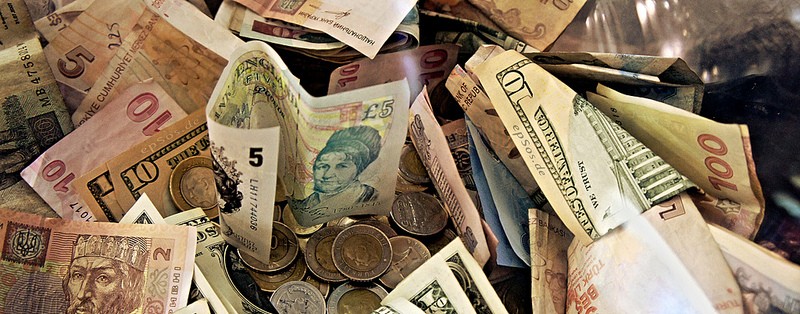The outflows of capital from emerging market economies such as Brazil, India, Turkey and Indonesia and accompanying currency depreciations have led to discussions of what has caused the reversals in fortune of these countries (see, for example, here and here and here.). Higher U.S. interest rates and signs of an improving U.S. economy are seen as “pull factors” that lure investors to the U.S.. Deteriorating fundamentals in the crisis countries, such as rising current account deficits or falling growth rates, are portrayed as push factors that drive foreign investors away.
Capital volatility is a familiar and possibly systemic problem. Seventy years ago, Ragnar Nurske (1907-2007) blamed capital flows for destabilizing exchange rates. Nurske served in the Financial Section and Economic Intelligence Service of the League of Nations from 1934 to 1945. While there he wrote most of International Currency Experience: Lessons of the Interwar Period (1944). In this study, Nurske blamed the exchange rate depreciations of the 1930s on destabilizing capital flows:
…As funds moved out to take refuge abroad, pressure on the exchange market was increased and the rate of depreciation accelerated, which resulted in a further loss of confidence and a further flight of capital. In its effects on the balance of payments the capital flow became disequilibrating instead of equilibrating. (League of Nations 1944:114)
Nurske’s views appear more relevant today than they did during the last decade, when financial globalization was generally viewed as a positive force, despite a lack of supporting evidence. The IMF, which had regarded an unregulated capital account as a suitable long-term goal for developing economies, reversed its stance during the 2008-09 crisis. The IMF now regards capital controls as an appropriate macroprudential tool (see, for example, here.).
Ben Bernanke, then a Federal Reserve Board Governor, issued a now-famous apology to Milton Friedman on the occasion of Friedman’s ninetieth birthday in 2002. Bernanke referred to Friedman’s work with Anna J. Schwarz that showed that the Federal Reserve had exacerbated the Great Recession of 1929 through its monetary policies, and promised: “You’re right, we did it. We’re very sorry. But thanks to you, we won’t do it again.” Perhaps it is time for a new (albeit belated) apology, in this case from the IMF’s Managing Director Christine Lagarde to Nurske. Friedman, who believed that successful speculators would return a misaligned exchange rate to its fundamental value, would be aghast. But perhaps the passage of time would allow the views of both Nobel Prize-winners to co-exist and guide current-day policy.
Correction: An alert reader has pointed out that Ragnar Nurske did not win the Nobel Prize. Perhaps I was confusing him with Ragnar Frisch, who shared with Jan Tinbergen the first Nobel prize in economics to be awarded in 1969.

